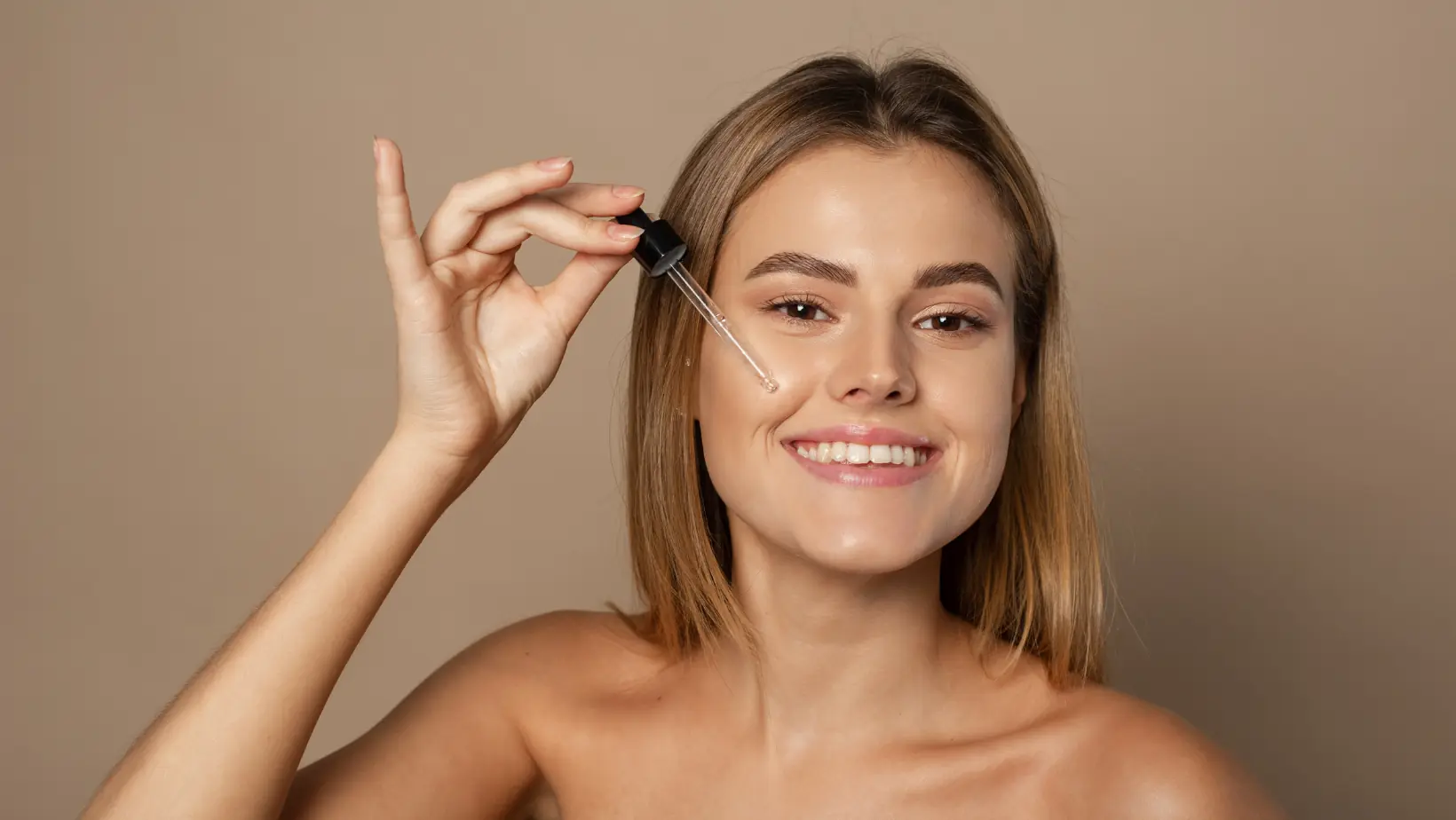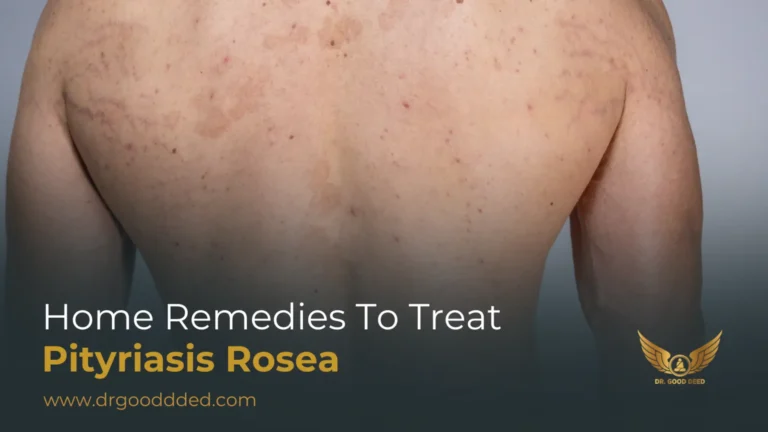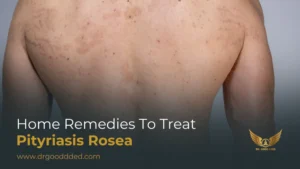Vitamin E capsules provide antioxidant support to skin and hair. You can apply the oil topically for scars, dryness, and dark spots. You can take oral capsules to support overall antioxidant balance. Topical use targets the skin and scalp directly. Oral use supports body-wide health. Use small amounts, patch test first, and follow safe oral doses from a health professional.
What Are Vitamin E Capsules Used For?
You use vitamin E for two main goals.
- You apply the oil to skin and hair for repair and moisture.
- You take vitamin E capsules by mouth to support antioxidant levels inside your body.
The capsule contains vitamin E oil. That oil is rich in tocopherols (a form of vitamin E). It fights oxidative stress (cell damage from free radicals). For skin, it soothes dry patches.
For hair, it calms the scalp and smooths the hair strand. For scars and dark marks, you apply the oil to aid in repair. For general health, you follow labeled oral doses or your doctor’s advice.
Antioxidant Benefits Of Vitamin E Capsules
Vitamin E acts as an antioxidant. Antioxidants neutralize free radicals. Free radicals cause cell damage and speed aging. When you use uses of vitamin E capsules on skin, the antioxidant effect helps slow visible damage. The oil supports the lipid barrier (the skin’s natural oil layer).
A healthy barrier keeps moisture in and irritation out. For hair, antioxidants protect the scalp and hair follicles from oxidative stress. That can reduce breakage and dryness. You get targeted antioxidant action when you apply oil. You get systemic antioxidant support when you take capsules by mouth.
How Vitamin E Capsules Help Skin, Hair, And Overall Health
When you apply vitamin E oil, it does three practical things for skin.
- It adds oil to the skin. This reduces flaking and tightness.
- It soothes inflammation and supports healing.
- It helps the skin keep moisture.
For hair, the oil improves shine and smooths the hair cuticle. It can reduce frizz and make hair feel softer. When taken orally, vitamin E supports immune function and cell protection across the body.
Remember, high oral doses can cause harm. Always check with a clinician before starting a high-dose supplement. For both uses, clean application and measured dosing matter. That is why vitamin E capsule uses are both popular and practical.
Benefits Of Vitamin E Capsules For Skin
You can use the benefits of vitamin E capsules to treat specific skin concerns. The oil provides hydration. It supports the healing of minor scars. It aids in reducing the appearance of shallow dark spots. The following sections break down common skin uses. Use short trial periods to see how your skin reacts.
Vitamin E Capsules For Glowing Skin
If you want a natural glow, use a small amount. Apply one drop to clean skin at night. Massage gently for 20-30 seconds. Vitamin E helps skin look plumper. It reduces dullness by sealing in moisture. For regular glow, you may use this routine two to three times weekly.
Combine with sunscreen during the day. Sunscreen prevents new dark spots and protects the gains you made overnight. Using vitamin E capsules for skin in a simple night routine supports a visible glow without complex steps.
Vitamin E Capsules For Dry And Damaged Skin
Dry skin needs oil and protection. Vitamin E oil fills in gaps in the skin barrier. Apply to dry elbows, knees, cuticles, and cracked heels. Use a thin layer. Heavy, greasy layers can trap dirt and cause breakouts on the face.
For damaged skin, use vitamin E as a spot treatment. Clean the area first. Then apply the oil twice a week to start. If your skin tolerates it, increase frequency. This measured approach helps you capture uses of vitamin E capsules without overwhelming the skin.
Vitamin E Capsules For Dark Spots & Pigmentation
Dark spots (areas with extra pigment) often form after sun exposure or acne. Vitamin E supports skin repair, which may soften dark spots. It does not erase deep pigmentation like some clinical treatments. Use vitamin E with consistent sunscreen. Apply the oil at night to target spots.
Combine it with gentler brightening agents like vitamin C if your skin tolerates both. When you treat spots, patience matters. Expect gradual lighting over the weeks. This is a realistic role for vitamin E capsules for dark spots.
Vitamin E Capsules For Acne Scars And Blemishes
You can use vitamin E oil to help shallow scars fade. It supports collagen and cell repair. For active acne, do not apply heavy oil directly to open pimples. Instead, wait until the lesion heals. Then apply a small drop to the scar. Track progress with photos every two weeks.
If scarring is severe, consult a dermatologist for professional options. Still, using the benefits of vitamin E capsules as a follow-up to healing can improve the scar’s texture and color over time.
Vitamin E Capsules For Hair Health
You can use vitamin E capsules on hair to support shine, scalp strength, and breakage control. Many people apply a small amount of the oil to damp hair or use it as a short pre-wash mask.
Vitamin E Capsules For Hair Growth And Scalp Repair
Vitamin E helps the scalp by adding moisture and easing dryness. A healthy scalp supports better hair growth. Dry bulbs and weak roots break faster. When you massage vitamin E oil on the scalp, you help blood flow in that area. This gives your scalp a better chance to stay strong.
Use one capsule for short hair and two for long hair. Mix the oil with a light carrier oil if you want a better spread. Leave it for thirty minutes, then wash gently. You can follow this twice a week. This method fits common uses of vitamin E capsules for weak or tired hair.
Vitamin E Capsules For Frizz Control And Shine
Frizz forms when the hair cuticle opens due to dryness. Vitamin E seals the strand. This gives a soft look and more shine. Rub one drop between your palms. Smooth it across the ends.
Avoid the roots so your hair does not look heavy. People who try this often find that the ends split less often. Many users include this step in vitamin E capsules for hair routines because it is simple and fast.
Vitamin E Capsules For Dandruff Reduction
Dandruff can come from a dry scalp. Vitamin E soothes dryness and flakes. Use a light layer. Massage for one minute. Leave for half an hour, then wash. If your dandruff is due to fungus, vitamin E may not fix it, so check with a dermatologist if flakes stay. Still, for dry scalp, this step fits well with vitamin E capsules for hair comfort.
How To Use Vitamin E Capsules Correctly
You get better results when you follow the right steps. Vitamin E oil is thick. A small amount goes far. Clean skin or a clean scalp helps the oil enter better.
How To Apply Vitamin E Capsules On Face (Step By Step)
- Wash your face with a mild cleaner.
- Pat dry with a soft towel.
- Pierce one capsule with clean scissors.
- Place one small drop on your finger.
- Tap it on dry spots, scars, or dark marks.
- Massage in small circles for half a minute.
- Leave it for two hours or overnight.
- Start twice weekly.
This simple method is one of the most common vitamin E capsule routines for face care.
How To Mix Vitamin E Capsules With Moisturizer Or Oils
You can mix vitamin E oil with your night cream. This helps spread the oil in a thin layer. If you want to use oils, choose mild ones like almond or jojoba. Mix one capsule with one teaspoon of your carrier oil.
Use on damp skin for better absorption. This helps reduce the heavy feel of pure oil. Such blends are often listed under vitamin E capsule uses because they help people with sensitive skin.
Best Time To Use Vitamin E Capsules For Results
Night use is ideal because your skin repairs while you sleep. Vitamin E supports this process. For hair, apply before your shower. Leave it for thirty to sixty minutes. Too much time may clog your scalp. Use a mild shampoo to wash it off. These timing habits improve the vitamin E capsules for skin and hair results.
Oral Vs Topical Use: Which Is Better
Topical use is best for skin and hair repair because the oil acts right where you apply it. Oral use supports overall antioxidant levels. If you choose oral use, follow medical guidance. Do not take high doses on your own. Both can work together when done safely. This balance is part of the broader vitamin E capsules use approach.
Vitamin E Capsules For Dark Spots
Dark spots form after sun damage or inflammation. Vitamin E helps the skin recover. It is not a bleaching agent. It supports repair from the inside of the skin layers.
How Vitamin E Reduces Melanin And Hyperpigmentation
Vitamin E slows the stress that leads to pigment buildup. It softens the look of spots by helping skin heal in a steady way. This effect is slow and needs consistent care. When you use vitamin E capsules for dark spots, pair them with sunscreen. Sun care keeps new spots from forming and saves you months of work.
DIY Vitamin E + Aloe Vera For Dark Spots
Aloe vera cools the skin and helps calm irritation. Vitamin E supports healing. Mixing both gives a gentle night treatment.
How to do it:
- Take one capsule of vitamin E.
- Mix with one teaspoon of aloe gel.
- Apply to the dark spot.
- Leave for the night.
- Rinse in the morning.
Repeat this routine three nights a week. Many people include this mix of vitamin E capsules for dark marks.
When Vitamin E Does Not Work For Pigmentation
Some spots form in deeper layers. Vitamin E cannot reach those layers in a strong enough way. If your spots do not fade after two to three months, you may need chemical peels or prescription creams. Do not expect vitamin E to clear deep melasma. Even the best uses of vitamin E capsules have limits. If you see no change, check with a skin doctor.
Side Effects And Precautions
Vitamin E is safe for most people. Still, some reactions can occur when the oil is thick or when the skin is oily.
Who Should Avoid Vitamin E Capsules On Skin
People who have very oily skin should use caution. Thick oils can trap sweat and dirt. People who get clogged pores easily should patch test the oil first. If you have very sensitive skin, test on the arm before using it on the face. These safety steps help you use vitamin E capsules in a responsible way.
Can Vitamin E Clog Pores Or Worsen Acne
Yes. Heavy oils can clog pores in some skin types. If you get bumps after using vitamin E oil, stop using it. Switch to lighter products. If you want to continue, mix a tiny amount into a non-comedogenic cream. This lowers the risk. People with acne-prone skin should avoid using pure oil on active acne. This warning is common when discussing vitamin E capsules for skin care.
Safe Dosage For Oral Vitamin E Capsules
If you take vitamin E by mouth, use the dose on the label or the dose your doctor gives. High doses can thin the blood. People taking blood thinners must be extra careful. Pregnant people should only use oral doses with a doctor’s approval. Oral uses of vitamin E capsules should always be planned with safety in mind.
Best Alternatives To Vitamin E Capsules
Some skin issues respond better to other ingredients. Vitamin E is good for moisture and repair, but you may need more targeted products.
Vitamin C Vs Vitamin E For Skin
Vitamin C brightens the skin and helps block new spots from forming. Vitamin E hydrates and supports healing. If you combine them, you get a stronger defense against skin stress. Both have good roles. When you compare the benefits of vitamin E capsules with vitamin C, each one helps in a different way that can fit your needs.
Hyaluronic Acid, Niacinamide, And Retinol Comparison
Hyaluronic acid adds water to the skin. Niacinamide supports an even tone and calms redness. Retinol speeds up skin cell turnover, which helps with texture and fine lines. You can pair them with vitamin E if your skin tolerates the mix. Always add one product at a time so your skin can adjust. These choices often appear next to vitamin E capsules in skincare plans.
FAQ
Can Vitamin E Capsules Remove Dark Spots Permanently?
No. Vitamin E can soften and fade mild spots. Deep spots need stronger treatments. When you use vitamin E capsules for dark spots, expect slow changes, not total removal. Stay patient with the process.
How Long Does It Take For Vitamin E Capsules To Show Results?
Expect changes after four to twelve weeks. The time depends on your skin type and how steady you are with care. When you follow how to use vitamin E capsules, track results with weekly photos for clarity.
Can I Use Vitamin E Capsules Daily?
You can if your skin reacts well. Start twice a week and increase slowly. People with oily skin should stay at lower use. Steady habits help you get safe use of vitamin E capsules.
Are Vitamin E Capsules Safe For Oily Or Acne-Prone Skin?
You must be careful. Thick oil can clog pores. Patch test first. If acne increases, stop the product. Still, some people can use vitamin E capsules for skin when mixed with lighter creams.
Can I Sleep Overnight With Vitamin E On My Face?
Yes, if your skin accepts the oil. Use a small amount only. Too much can stain your pillow and clog pores. People who follow the vitamin E capsule use overnight steps should monitor for bumps.
Is It Safe To Use Vitamin E Capsules Under The Eyes?
Use a tiny amount. The skin under the eyes is thin. If you feel burning or see swelling, stop at once. Many people use safer eye creams instead, but the use of vitamin E capsules can work if done with care.
Can Vitamin E Capsules Lighten Lips?
Vitamin E helps dry lips look softer. It may reduce slight darkness from dryness, but it does not bleach the lips. When used often, vitamin E capsules for skin can make lips feel smoother and healthier.
Can Vitamin E Capsules Be Used During Pregnancy?
Topical use in small amounts is often fine. Oral use should be cleared by a doctor to avoid high doses. Pregnant women must follow medical advice to stay safe when using vitamin E capsules.

















Leave a Comment